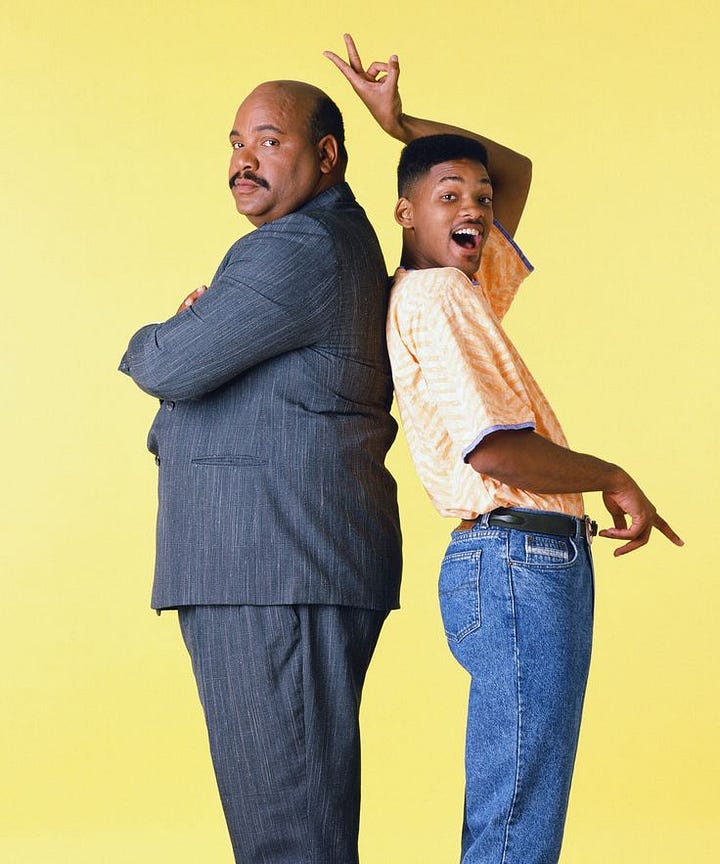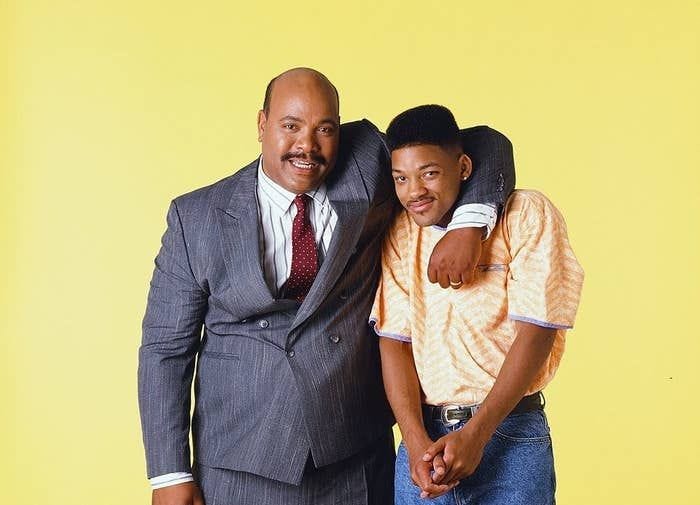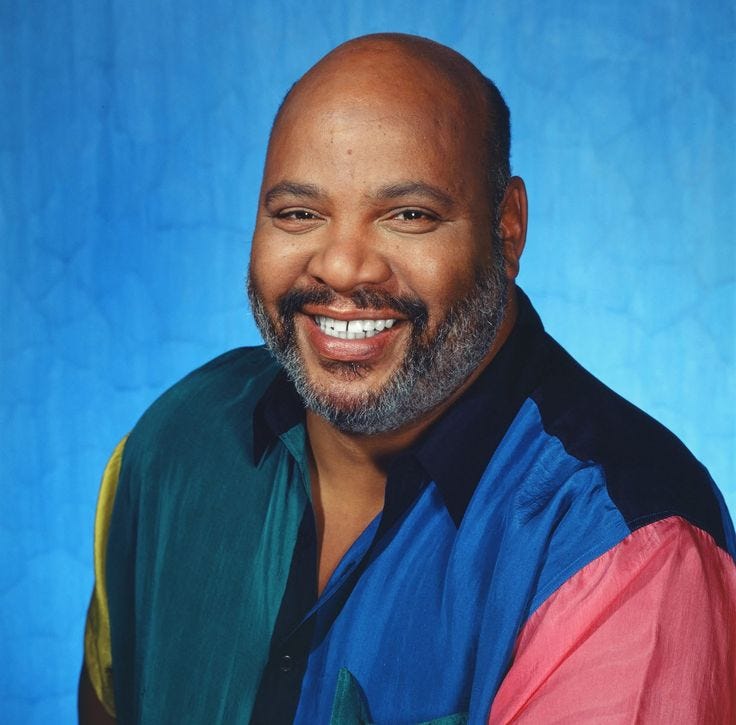Remember snacks?
Not the occasional treat you allow yourself as an adult. I mean snacks. Terrible for you, but so good when they hit your lips. A Plate piled high with crap made entirely of carbs, food colouring, sugar. Fluff disguised as edible, a pitstop between actual real sustenance. Well, I was a snacks connoisseur.
A creator of combinations that made no sense to anyone but my tastebuds as I needed my snacks to accompany my stories.
My TV time...
Before assumption leads you up a cracked garden path, no, I wasn’t a kid allotted a window in front of the only screen in the house. We’re an African family. Mum worked A LOT.
My TV time was bound to a schedule of programming made explicitly for me, programming I gobbled up for years. These were aspirational worlds designed specifically to hypnotise my soft tissue. Thirty-minute escapes through the eyes of teenagers on the other side of the pond.
But this isn’t about them.
This isn’t about Tia, Tamera, Will or Carlton.
This is about their parents.
The responsible adults. The bit parts in their adventures… this is about the people that made them, and how they played a huge part in making me.
How they loved, how they raised their kids. Or in the case of Will, Kids that weren’t even their own. How they delivered discipline, played, showed weakness, led with a twinkle in their eye. The parenting I cried out for as a kid, I found it on screen.
In my teens, there was an endless list of black fathers in half hour slots. Men who somehow resolved a bind using wisdom, leadership and humour in thirty-minute windows of familial fantasy. Problems came, laughs followed, hugs wrapped it all up by the credits.
That rhythm carved an expectation life shorted. Life hasn’t delivered applause breaks or moral monologues, but somehow, the fantasy hasn’t faded. A fantasy cemented by families that filled the small screen.
Head of one such family, was Uncle Phil.
Uncle Phil wasn’t just funny, he was present. The kind of father who made space for tears, raised his booming ass voice out of love, and positioned those softer moments as strength. He was the butt of a joke and occasionally the architect.
He made you laugh, then grounded you for the weekend. He was a father to more of us than the writers who wrote his lines probably ever imagined.


Uncle Phil wasn’t just a sitcom dad, for me, he was the sitcom dad. And not in a corny, pipe and slippers, “go ask your mother” way. The man had presence. He had weight. Literally and metaphorically. He filled a room and filled a gap, especially for those of us watching without anyone like him at home.
Back in the early noughties, I was a British TV host in LA. A wide-eyed talent sold a dream, happily gripping my golden ticket for what turned out to be nothing more than a water bottle tour. Weeks of being ferried from meeting to meeting by some low-level WME agent in a shit suit. I’d skip out of every meeting with my free Fiji, convinced I really made a connection, because… LA.
Little did I know, you never have a bad meeting in LA.
Never.
Between two of those very pointless and very exhausting meetings, I was at the lifts with no words left. Desperate to escape the Baltic AC. Finally, the doors separated with a ping, and there he was. Uncle Phil.
Stood on crutches, the man was in the early stages of recovery and headed for the quiet escape of basement parking. In that moment, I wasn’t a peer, I wasn’t another talent taking meetings in the same building, I wasn’t even a fan; I was one of his kids.
“Uncle Phil, what happened?” I spat with concern.
He smiled… then replied:
“Nothing major son, I’ll be on the golf course in time”
We chatted loudly.
He made dad jokes.
I laughed.
He knew what I hoped he’d be, and he delivered.
But I wasn’t sharing a lift with Uncle Phil, this was James Avery. An actor with enough grace to grant me my moment with a character I loved. An actor on crutches, who just wanted to get to his car, but happily delivered my moment of fatherly fantasy.
A gift given by a good man.
A man I didn’t know, but he knew exactly who I was.
And I’m sure I wasn’t the first, nor the last stranger who’d approached him like one of his children. It was something Uncle Phil would do… what’s to say that over time, the line between the actor and his most famous role hadn’t blurred?
Maybe James understood the power of Phil, and where necessary, became his on-screen persona just for people like me?
As it turns out, both James Avery and Uncle Phil gave me something TV seldom delivered, a Black father who was complex. I guess that’s why he stuck. Why he still sticks. He showed a generation of kids without dads, kids with silent dads, kids with tired mums doing both jobs, that fatherhood could look like that.
Could feel like that… even if he wasn’t in the mood.
Even if he was on crutches…
Remember that scene?
Yes, I’m talking about that scene, the one that cracked something open in a lot of us. The one that spoke directly to the kids who’d been left, overlooked, or just never chosen. The ones who knew what absence felt like, and got good at pretending it didn’t hurt.
"Why don’t he want me, man?"
That’s what Will asked Uncle Phil about his father. He was the Fresh Prince, he had to play it cool. He tried to bury pain under swagger and shrugs. But the mask slipped. And when it did, we saw something that wasn’t supposed to exist in a sitcom. Heartbreak.
This was the happy go lucky lead who always made the joke. An all too familiar moment, built on something real. Something too many of us know intimately.
This wasn’t delivered with a punchline to soften the blow. Just a young Black man, standing in front of a father figure, desperate for an answer.
It hit because it was real.
Because we’d asked that question ourselves. Because that question lived in us as an ache. A need. An undistinguishable feeling painted over with anger… I remember feeling confused as to why the show I went to for escape, was making me cry. I remember my sister and I sat in silence refusing to acknowledge the feeling it stirred.
It was a TV moment without words, that somehow spoke directly to the audience. A moment where Uncle Phil was there for all of us.
He didn’t try to fix it. He didn’t offer platitudes. He held Will. Let him cry. Let him break. That silence between them said more than a monologue ever could.
That scene wasn’t just great television. It was therapy. It was truth. It was the moment Uncle Phil became everyone’s dad, not because he had all the answers, but because he stayed when someone else didn’t.
Uncle Phil was the Gold Standard of Black Dad Duality.
He was a corporate lawyer, ex-street kid, and one-wig snatch away from becoming your worst nightmare...
Years after The Fresh Prince became a re-run staple, a new kind of sitcom emerged. My Wife and Kids saw the world through dad’s eyes, much like Cosby did years before, only this felt fresh and even closer to the fun I one day hoped to embody.
There’s wisdom in a well-timed punchline, for so many of us, comedy became a care system for clarity, and sometimes, confrontation. Michael Kyle from My Wife and Kids wrapped everything in humour. But underneath, there was intention.
Played by Damon Wayans, Michael Kyle practically ran a sitcom inside the sitcom. He was teaching his kids with elaborate role-play. The living room became a lecture hall, a courtroom, a fake hotel. On this show, parenting was theatre.
This was the cool dad rebrand of traditional black fatherhood. Michael Kyle was at every dinner, school event and meltdown. A presence respected by his family, yet feared ONLY because of his superhuman ability to inflict painful embarrassment through humour.
Black sitcoms reframed Black fatherhood as deeply involved and emotionally intelligent, while still being funny as hell.
These fathers didn’t just ground you, they made it poetic. Michael Kyle made his son Junior live as a baby again. Uncle Phil gave looks that aged you 10 years. They had an "I Love You, But Let Me Roast You First" approach.
Michael Kyle and Uncle Phil were just two from a long list of men I met on screen. Men who weren’t real, but embodied a reality I needed to believe in. I’ve never been one for prototypes, but there’s a part of these works of fiction that have continued to stay with me...
The men they were on screen, and in the case of James, the man he was in that short journey to the parking structure became a blueprint to build upon, even if those foundations were something that was never really there.











Loved this, can really relate. Made me think of One on One (such an underrated show). It was the first time I saw a single Black dad raising a teen daughter in a way that felt both real and soft. That dynamic really stuck with me.
Now I want to rewatch Sister Sister and Smart Guy omg! Floyd was such a lowkey hilarious single dad keeping everything together. We defo don’t talk about him enough!
More than entertainment and the actors of this era understood that! Huxtable, Winslow, Banks, Kyle, Mitchell, Campbell and many more gave therapy to a generation and I believe that they are the reason why our parents aspired to be better than their parents and why we currently as a generation of adults approach parenting and mentoring with such a heightened level of emotional intelligence. A heartfelt thanks, to our TV parents. 🙏🏾💫